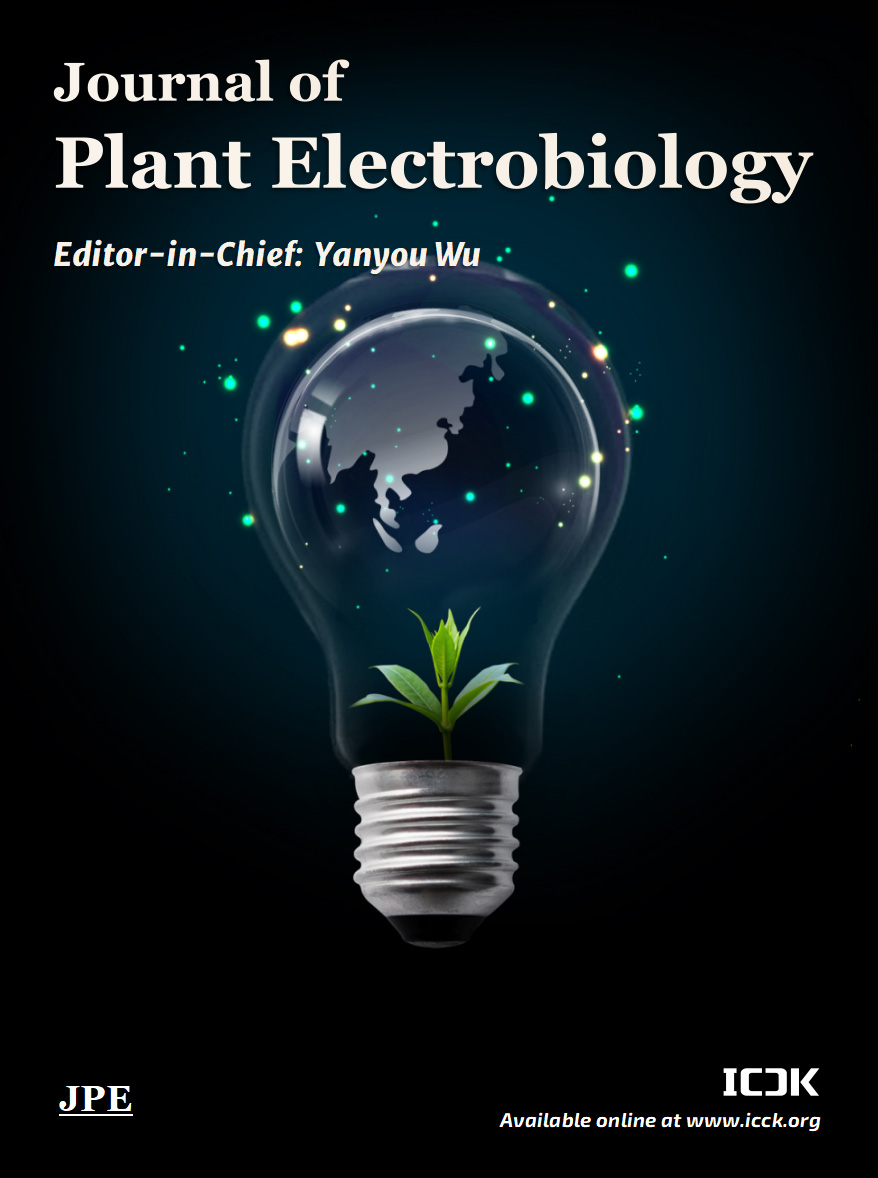About the Journal
| Journal | Journal of Plant Electrobiology |
|---|---|
| ISSN | pending |
| Abbreviation | J. Plant Electrobiol. |
| CODEN | JPE |
| Publishing Model | Hybrid |
| DOI Prefix | 10.62762/JPE |
| Official Website | https://www.icck.org/jpe |
Aims & Scope
Journal of Plant Electrobiology (JPE) is a peer-reviewed international journal dedicated to advancing the transformative intersection of electronics, bioenergetics, biophysics, and plant science. Our core mission is to serve as a global platform for showcasing innovative, high-impact research that addresses unmet fundamental and applied challenges in plant biology—by harnessing electronic principles and cutting-edge electronic technologies, integrated with the foundational tenets of plant bioenergetics and biophysics.
JPE publishes high-quality, original contributions that emphasize the integrated application of electronics, bioenergetics, and biophysics to plant science—ensuring scientific rigor, technical novelty, and relevance to both academic and industrial audiences. The journal welcomes original research articles, comprehensive critical reviews, concise communications, detailed methodological papers, technical notes, and forward-looking perspective pieces. Coverage includes, but is not limited to, the following thematic areas:
• Electronic Sensing of Plant Bioenergetic & Biophysical Traits
• Modeling & Simulation of Plant Electrobiological Processes
• Electrobiological Modulation of Plant Growth & Development
• Electrobiological Technologies for Plant Stress Detection & Mitigation
• Sustainable Agriculture via Electrobiological Innovation
• Methodological Advances in Plant Electrobiology
Publication Frequency
Quarterly
Ownership
The journal is owned by Institute of Central Computation and Knowledge Inc.
Author Fees
For information regarding publication fees and waiver policies, please refer to Article Processing Charge (APC).
Archiving
All journals published by ICCK are archived in Portico, which provides permanent digital archiving for scholarly journals.
Copyright & Licensing
The journal adopts a Hybrid Publishing Model. This means that some articles are published under the subscription model, while others are published as open access.
Subscription-based articles: For articles published under the subscription model, authors are required to transfer the copyright to the journal. Readers can access these articles through institutional or individual subscriptions. In addition, the journal designates a number of subscription-based articles as Free to Read, which allows unrestricted online reading without subscription fees.
Open access articles: For articles published as open access, authors retain the copyright of their work. These articles are distributed under the terms of the Creative Commons Attribution License (CC BY 4.0), which permits unrestricted use, distribution, and reproduction in any medium, provided the original author and source are properly cited. Authors may also self-archive the final published version in institutional repositories, personal websites, or other platforms without embargo.
Access Policy
All articles published in this journal are freely available to readers worldwide immediately upon publication. There are no subscription charges or pay-per-view fees. Readers may read, download, copy, distribute, print, search, or link to the full texts of the articles, or use them for any other lawful purpose, without asking prior permission from the publisher or the author.
Editorial Board
The Journal is guided by an Editorial Board consisting of recognized experts in the field. For the complete list of Editorial Board members, please refer to Editorial Board.
Peer Review
The journal adheres to rigorous peer review and undergoes single-blind peer review. For more details, please refer to Editorial Process and Peer Review Policy.
Editorial Process
All manuscripts submitted to JPE should adhere to the journal's Editorial Process.
Plagiarism
Plagiarism detection is performed at ICCK using the iThenticate- Crossref Similarity Checking tool. This web-based tool is employed in the editorial process to identify potential text plagiarism. It's important to note that while iThenticate can identify matching text, it cannot independently determine whether plagiarism has occurred. Manual examination of the matching text is still necessary, and judgment must be exercised to ascertain the presence or absence of plagiarism. The similarity report might be sent to the author for revision whenever needed.
Publication Ethics Statement
ICCK is responsible for implementing rigorous peer review and strict ethical policies and standards to ensure that high quality scientific work is added to the field of scholarly publishing. ICCK takes such publishing ethics issues very seriously, and our editors are trained to enforce COPE's Core Practices and Guidelines, with a zero-tolerance policy for plagiarism, data falsification, and other behaviours. To verify the originality of content submitted to our journals, we use iThenticate/Crossref Similarity Check to check submissions against previous publications.
Advertising
The journal does not accept any commercial product advertisements until policy changes otherwise.
Direct Marketing
Journal propagation has been done through the journal website and distribution of an introduction pamphlet. Invitations to submit a manuscript are usually targeted towards presenters at conferences, seminars, or workshops related to the journal's aims and scope.
Contact
Please visit Contact Us for details about different queries.

